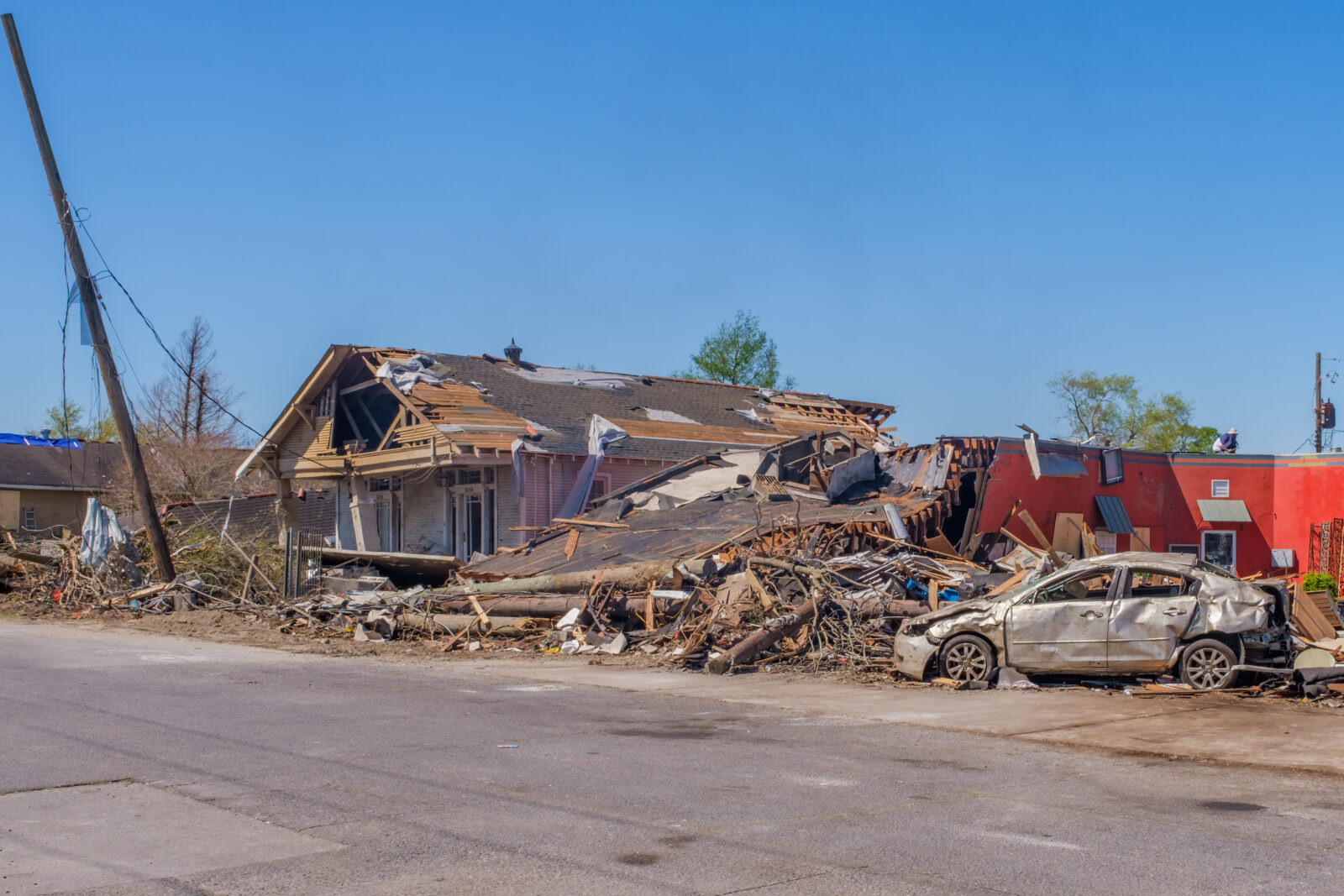This is the second in a series. Read the first column here.
Our tendency when we hear of a disaster is to ask when FEMA — the Federal Emergency Management Agency — will arrive. But because of some curious federal rules, Perryton Mayor Kerry Symons said his community will receive nothing.
That’s because the threshold for FEMA help depends on meeting requirements that vary by state population. Damage that would be large enough to warrant help in Rhode Island doesn’t cut it in Texas. The logic is that a large state can bring to bear more resources than a small one.
That bureaucratic rule hurts Perryton residents like Maria Marufo, who depended on income from renting out six mobile homes at $450 per month. The tornado destroyed all six. None was insured. It hurts residents like Maria Fabela, who lost her house.
What did help: Assistance from groups including Texas Baptist Men, Christian Aid, Samaritan’s Purse, and the Key Heights Baptist Church in clearing away rubble. Owners of old mobile homes that needed fixing offering replacements, as long as Marufo would find people to fix them: “People have said you need this or that for your homes, well get it for you. What you need, tin for roofs? We’ll get it off a barn.”
State government teams were also active: The Texas Department of Transportation, for example, brought in 150 dump trucks, loaders, and street sweepers, and in two days hauled off 1,750 truckloads of debris.
Perryton residents were thankful for individual help, church help, and state and local governmental help, but those I spoke with were most thankful to God. Maria Marufo said, “We were in one of the trailers…. My Yorkie ran into the pantry. I ran after him. My daughter in law ran after me. The trailer lifted up, up in the air. Eighty feet long and it was in the air. It jumped another trailer and we landed fifty feet away. Only some scratches on us. We were blessed.”
Others were also thankful. Key Heights pastor Duce Cooper said 60-70 people were in his church at 5 p.m. on June 15 at a church dinner when the tornado passed two blocks away. He said if it had hit the church building, or come an hour later when more people were in homes that the tornado destroyed, the death toll would have been much higher: “as a community we’ve been blessed.”
Key Heights set up at the back of the church portable showers, washing stations for clothes dragged out of rubble, and cleaning products. Cooper told me of people who have taken in displaced families, donated campers, and helped with down payments on new trailers. He asked me not to publish names because “that might suggest some are doing it to get accolades. They did it to glorify and honor Christ.”
Mayor Symons estimated that fifty families moved into apartments or rent houses previously uninhabited, twenty-five bought other homes, twelve stayed in hotels—and most doubled up with relatives or friends. According to census data, 52 percent of Perryton residents speak Spanish at home. One third of Perryton’s population is foreign-born, and three-fourths of those are not U.S. citizens.
Some Perryton residents, particularly those dependent on businesses now closed, have moved to other cities: The beginning of the school year showed forty children missing. Many of them represent the families of undocumented immigrants who would not have stepped forward for FEMA aid anyway.
Perryton is a conservative city with lots of concern about illegal immigration, but I did not hear anyone saying those offering help should discriminate on the basis of which documents a needy person possesses. A realization that Uncle Sam was not riding to the rescue probably brought forth more private contributions available to residents regardless of their legal status.
The Perryton disaster relief list on Amazon included: antibiotic ointment, antiseptic, batteries, cat food, clothespins, duct tape, flashlights, ibuprofen, microfiber washcloths, pillows, socks, T-shirts, and underwear. Cash arrived via the United Way and benefit concerts in Amarillo. Numerous verified GoFundMe pages, some in Spanish, typically brought in $1,000 each for individuals and families.
None of this community help means the disaster should be taken lightly. Although it readily could have been much worse, many families were hit hard. Here’s one FundMe page loosely translated from Spanish: “The tornado completely took away the trailer where my brother, sister-in-law, nieces, and I lived. The 3-year-old niece has a broken arm, and my sister-in-law has 8 broken ribs, a punctured lung, and a splintered clavicle. We will be grateful for any help. God bless you.”

